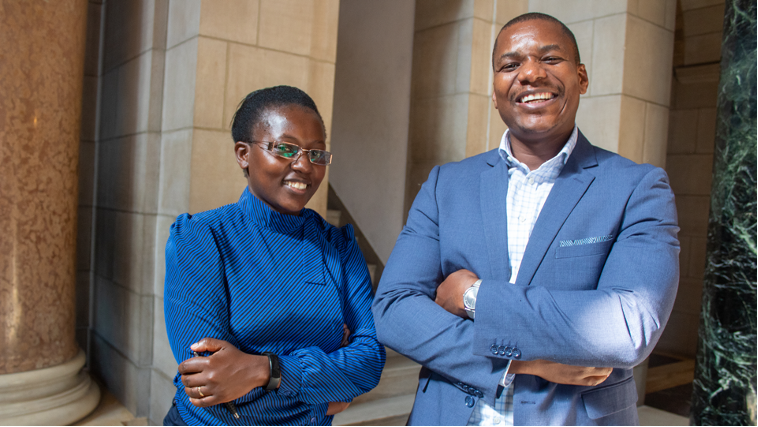
By Courtney Van Hoosen | Office of Global Strategies
The University of Nebraska–Lincoln has established long-term relationships with several Rwandan universities and the U.S. Embassy in Rwanda. Now, as an inaugural awardee of a $250,000 grant from the U.S. Department of State’s Bureau of African Affairs University Partnerships Initiative, Nebraska will expand those relationships with a new program designed to build Rwandan capacity in international partnership management.
"We are proud to support efforts to expand the connections between colleges and universities in Rwanda and the United States,” said U.S. Ambassador to Rwanda Peter H. Vrooman. "We see this as an important investment in education, helping to position American and Rwandan institutions to take full advantage of all of the opportunities that come with international partnerships in higher education."
Working in close partnership with the U.S. Embassy in Kigali, Nebraska has launched the University Partnerships and Exchange Rwanda Program. The UPEX-Rwanda Program aims to create long-lasting, impactful relationships between U.S. and Rwandan universities through virtual exchange trainings, professional development workshops and dynamic mentorships for a cohort of mid-career professionals at Rwandan institutions of higher education. It will also build Rwandan administrator capacity and reciprocal engagement with the United States to enhance regional prosperity, security and sustainability.
“Nebraska is thrilled to partner with the U.S. Embassy in Kigali and Rwandan universities on this exciting initiative,” said Josh Davis, associate vice chancellor for global affairs. “The UPEX-Rwanda program is particularly innovative as we leverage our strengths in virtual exchange to engage with new institutional partners and help develop their international partnership capacity.”
Nebraska’s Office of Global Strategies will lead the UPEX-Rwanda Program fellows through a year-long virtual training program beginning in January. Each month, the cohort will participate in workshops led by content experts in international partnership management from across the United States and Rwanda, apply best practices in case studies and site visits, and meet virtually with a U.S.-based mentor. Key concepts covered in the program include the internationalization of higher education, strategic partnership management, grant writing and project implementation. At the conclusion of the program, the cohort will also present an international partnership proposal and jointly organize a symposium on university partnerships in Rwanda.
“I look forward to the start of the UPEX-Rwanda program as we further deepen our engagement in Africa,” Davis said. “Rwanda has emerged as a strategic global partner for the university on a number of different projects over the last decade.”
In February, Davis spoke at the U.S.-Africa University Partnerships Forum in Washington, D.C. The forum was led by Assistant Secretary of State for African Affairs Tibor P. Nagy, Jr., as a follow-up to the 2020 AIEA Annual Conference. During his panel session, Davis shared several examples of Nebraska’s successful partnerships across Africa, including hosting multiple leadership institutes for the Mandela Washington Fellowship for Young African Leaders; the CASNR Undergraduate Scholarship Program that provides full scholarships for more than 200 Rwandan undergraduate students; and advising on recruitment and curriculum design for the new Rwanda Institute for Conservation Agriculture.
“As we renew our commitment to global partnerships in the coming years, I look forward to connecting Rwanda to Nebraska, and Nebraska to Rwanda through the University Partnerships Initiative,” Davis said.
Program details and application requirements can be found on the Nebraska University Partnerships and Exchange Rwanda Program website. Applications for the 2021 cohort will close at 11:59 p.m. Central African Time on Friday, December 11, 2020.
The Nebraska UPEX-Rwanda Program is funded by the U.S. Department of State’s Bureau of Africa Affairs University Partnerships Initiative. Launched in 2019, the goal of UPI is to strengthen collaboration between U.S. and African universities while harnessing the enormous opportunity posed by Africa. Expanding existing links and promoting new partnerships at the university level will strengthen Africa’s educational institutions and create reciprocal learning opportunities for American universities.